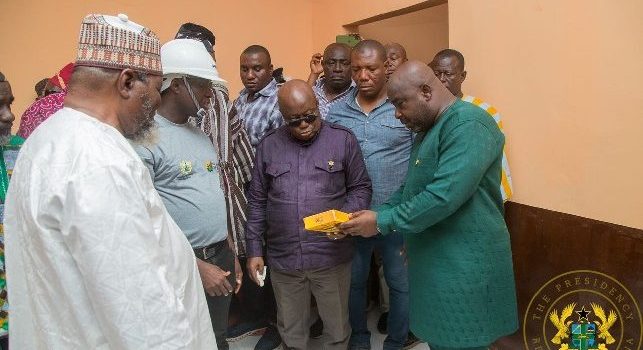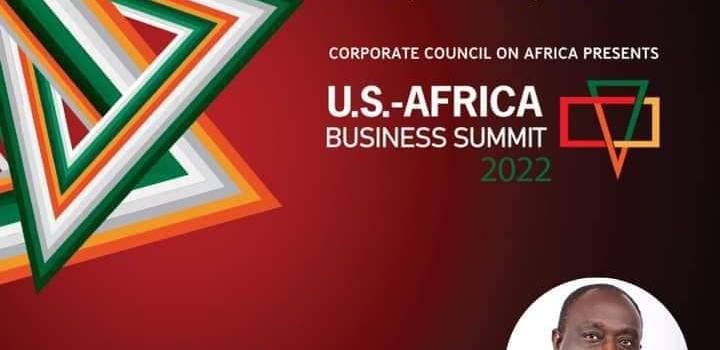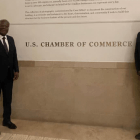UNIDO, EU and government build capacity for 1D1F listed companies in good manufacturing practices
The United Nations Industrial Development Organization (UNIDO), the European Union-funded West African Competitiveness Programme (WACOMP) and the Ministry of Trade and Industries (MoTI) has organised a two days training on Food Safety, Quality standards and Good Manufacturing Practices (GMPs) for 30 “One District One Factory “ companies.
Selected Production Heads and Quality Assurance Officers from 1D1F factories across the country operating in the cassava derivative and fruit value chains took part in the training.
Frederick Gyamera Owusu, WACOMP National Quality Infrastructure Expert, who was the trainer said issues of conformity to standards, product regulations and product safety, in general, have become key considerations influencing the choices of today’s consumers and many markets require products reaching their regions to have acquired certain certification, quality or at minimum, be registered by national conformity bodies.

Mr. Owusu said “the training to improve quality, hygiene and efficiency of 1D1F enterprises will impact the quality and safety of final products manufactured by the factories as GMPs are designed to minimise these risks associated with production and to improve product quality.”
Charles Kwame Sackey, Chief Technical Advisor of UNIDO noted that “WACOMP collaboration with MoTI and the 1D1F Secretariat to train experts in quality assurance aims to build competence and support MSMEs build a robust quality infrastructure particularly for new entrants to improve quality and food safety at processing plants.”
Kofi Addo, the Chief Commercial Officer and Head of Government’s flagship ‘One District One Factory (1D1F) Initiative under the Ministry of Trade and Industry said “the 1D1F initiative seeks to transform Ghana’s Industrial landscape and so this quality initiative between UNIDO and the secretariat is of key importance to Ghana.”
1D1F: Akufo-Addo Inspects Gh¢9.2m Yam/Cassava Factory In Bimbilla
President Nana Addo Dankwa Akufo-Addo, on Tuesday, 9th August 2022, visited Global Almas Processing Ltd, a yam and cassava processing factory in Bimbilla, in the Northern Region.
Taking the President on a tour of the factory, the Deputy Minister for Trade and Industry and Member of Parliament for New Juaben South, Michael Okyere Baafi, indicated that the company has taken advantage of the available local raw materials in the Nanumba and surrounding areas to process yam and cassava flour for both domestic and foreign markets.
According to the Deputy Minister, Global Almas has land bank of more than 2,000 acres at Bimbilla, and additional land would be acquired as the operations expand with anticipated increase in demand for products. He noted also that the factory produces 1,000 cartons of Yam Fufu Flour per day, under the brand name Almas Yam Fufu Flour, requiring the purchasing of 10,000 yam per day. With respect to the cassava processing line, some 200 bags of cassava flour is produced per day, with the company engaging some 20 farming groups, who have committed themselves to producing for the factory.

Mr Baafi indicated to the President that the total cost of the factory is pagged at GH¢9.2 million, with 60% equity contribution from the Promoter translating to about GH¢5.2 million. The Ghana Exim Bank has also provided a credit facility amounting to GH¢1 million (10.8% of the total project cost) which was disbursed in February 2021.
Global Almas has, thus far, created more than 74 direct jobs including Management, Supervisors, Food Scientist, Laboratory Technician and Maintenance Technicians as well as women who are involved in the peeling, cleaning, bagging, stitching machine attendants and sorting of the yam/cassava.
In addition, over 400 additional Indirect jobs have been created for out-growers, transporters, harvesting team, packaging & handling, sales outlets, etc. Already, the company has signed an agreement with Sinostone Ethanol Manufacturing Company located in Juapong to supply 1,000 tons of cassava chips every month. Another agreement has been concluded with Bofas Company Limited located in Wa for the supply of 40-foot container of yam fufu flour every month for export to the US market.
Hon Minister speaks at the 14th U.S.-Africa Business Summit
The Minister of Trade and Industry, Hon Alan Kyerematen speaks at the Corporate Council on Africa’s 14th U.S.-Africa Business Summit in Marrakech, Morocco scheduled for July 19 – July 22, 2022.
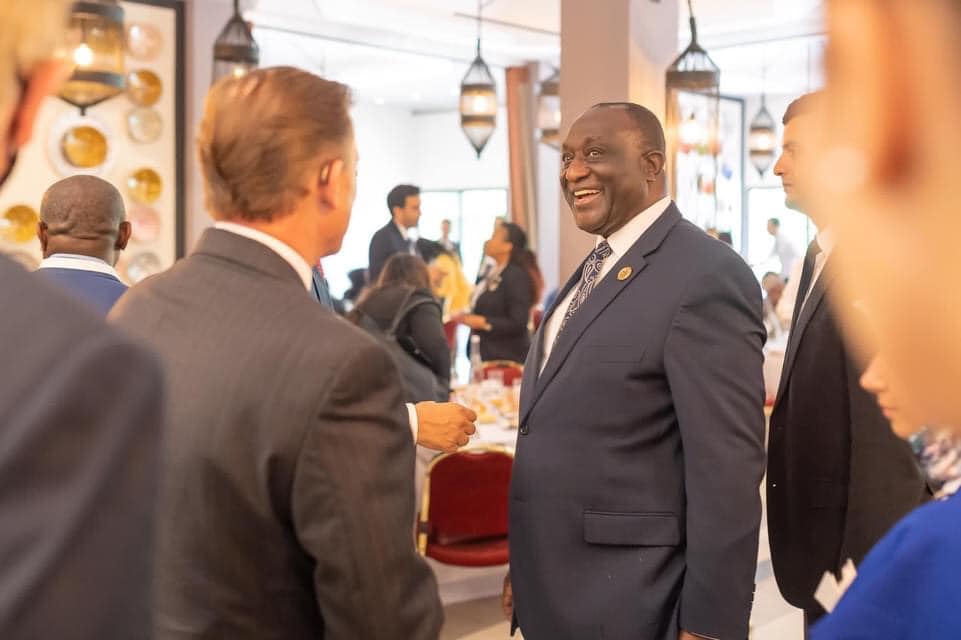


Industrialisation drive: 67 Business resource centres built
The country’s industrialisation agenda has received a major boost with the establishment of 67 business resource centres (BRCs) across the country.
They were set up by the Ministry of Trade and Industry, under the Rural Enterprises Programme (REP), to support the growth and competitiveness of micro, small and medium enterprises (MSMEs) and One-District, One-Factory (1D1F) companies.
The BRCs are providing business development services such as the identification of business opportunities, business plan preparation, facilitation of access to finance/credit and business health check, otherwise known as business diagnostics. Other services include the provision of training in management and entrepreneurship, business counselling and advisory services, productivity improvement programmes and capacity building for institutions.
The BRCs, to be run as profit-making entities, are to be managed by private sector operators under a franchising arrangement with the Ghana Enterprises Agency (GEA), the ultimate owners of the BRCs. This is to ensure the sustainability of operations and maintenance of facilities of the centres and also the aggressive and guided promotion of business activities in the country.
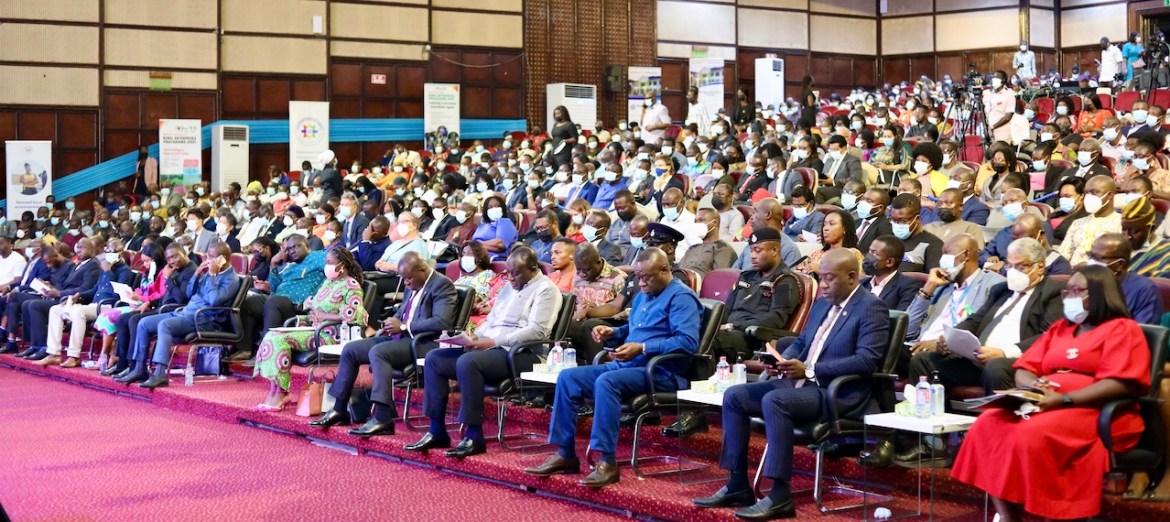
Currently, 37 out of the 67 centres are in operation, with facilities such as reception areas, offices for staff, business centres/cafés, conference/training rooms, small meeting rooms and showrooms.
All BRCs are connected to standby generators, solar power and boreholes and equipped with information and communications technology (ICT) equipment to support information and communication processes. The establishment of the BRCs was funded by the International Fund for Agricultural Development and the African Development Bank (AfDB).
Launch
Speaking at the launch of the BRCs in Accra yesterday, the Minister of Trade and Industry, Alan Kyerematen, noted that many countries, especially in Europe, North America and Asia, had developed their economies by paying more attention to building strong MSMEs that had grown from family-owned businesses into multinationals. “The great nations of this world are not where they are because of their natural resource endowments. If that were the case, countries like Singapore and South Korea would be the poorest countries in the world and Africa would be the richest,” he said. “Those countries are great because of their commitment to the development of entrepreneurs. There are companies that make annual turnover larger than Ghana’s Gross Domestic Product,” he added.
He noted that many MSMEs in the country had not been able to take advantage of international trade agreements signed with leading economies in the world due to some challenges, such as the high cost of credit, weak production and retail infrastructure, low technology adaptation, and inadequate market information.
The Trade Minister said it was against that backdrop that the ministry had, since 2017, been implementing a comprehensive industrial transformation programme to make the country the new manufacturing hub in Africa. To achieve that industrial objective, programmes such as re-aligning REP to provide comprehensive support for MSMEs and 1D1F companies had become necessary, Mr Kyerematen said.
He noted that Ghana was faced with three main challenges, namely: unemployment, low revenue mobilisation and lack of sustained inflow of foreign exchange, which needed to be tackled to put the country on the right path. “Every year, over 300,000 people graduate from our tertiary institutions. If we add this to those who complete second-cycle institutions and those who do not even make it to the second-cycle or tertiary level, nobody needs to convince us that unless we find a structured solution to deal with unemployment, we will have national security challenges on our hands,” he said.
Mr Kyerematen said about 80 per cent of employment generated in the country came from MSMEs and, therefore, appealed to the Ministry of Finance and the Bank of Ghana to put together a no-guarantee scheme that would ease liquidity in the banks to support the development of MSMEs. The government, he said, must drive the public sector to provide institutional support and additional development services for MSMEs, saying by doing so, the MSMEs would start paying taxes that would help deal with the problem of low revenue mobilisation. “If the only answer to export revenue mobilisation is proceeds from the export of cocoa, then we may have a problem in this country. We have been depending on cocoa and gold for over a century for our export revenue. It must occur to us that we have to move beyond cocoa. We should mobilise MSMEs to produce for export,” he emphasised.
The country needed export revenue to be able to finance the development agenda and also support the local currency, and that could be achieved if MSMEs were supported, he said.

Other Business Centres
The National Director of the REP, Kwasi Attah-Antwi, said one of the biggest achievements of the REP was the huge innovative institutional legacy that was being bequeathed the country at the district, regional and national levels for the promotion of business development. “The BRCs are for the promotion of business development services, engineering technology development, industrialisation, among others, particularly in the rural areas,” he said.
Mr Attah-Antwi disclosed that aside from the BRCs under the Business Development Service component of the REP, 161 business advisory centres (BAC) had been established in the various assemblies, adding that through the centres, over 93,031 new businesses and 153,275 direct jobs had been created as of December 2021. At the event, the REP signed a memorandum of understanding with the GEA regarding their expected roles and commitment to take full custody of and manage the BRCs under the franchising scheme.
National assets
The Chief Executive Officer of the GEA, Kosi Yankey-Ayeh, described the BRCs as huge assets for the nation’s growth and development. She explained that the centres would provide quality direct implementation support for MSMEs in the country, which would in turn drive the economy and make it more sustainable and resilient.
Mrs Yankey-Ayeh further pledged that the GEA, in undertaking its supervisory role over the BRCs, would ensure that the requisite tools to function were provided as expected. The Senior Transport Engineer at the AfDB, Sheila Enyonam Akyea, said the establishment of the BRCs was in line with the bank’s policy of helping to develop the rural areas.
The BRCs would go a long way to support youth and female-owned businesses and develop the skills set required for the 1D1F initiative, she added. Ms Akyea said checks had proved that all resources that went into the establishment of the centres were used appropriately and as intended.
Deputy Trade Minister launches new VW T-Cross Model

MOTI commemorates Green Ghana Day
Priority Sectors
The Ministry maintains close working relations with the Private Sector through the following institutions:
- Agriculture & Agro-Processing – Provision of agricultural inputs such as improved seeds and agrochemicals including fertilizers, pesticides and herbicides. Veterinary drugs, vaccines and chemicals; animal feed and feed ingredients are also required.
- Cotton & Textiles – Ghana has a reputation for producing high quality, traditionally designed printed cloth. The widely celebrated Kente cloth of the Ashanti and Ewe people are hand-woven and brightly coloured with traditional symbols and design.
- Food Processing – Investment opportunities exist for producers and processing companies.
- Forestry – Incentives to the sector may apply under the following provisions; There is custom duty exemption for agricultural, and industrial plant, machinery and equipment imported for investment purpose. etc.
- Health – Investment opportunities available in the health sector are in; Hospitals and clinics, Health Centers, Maternity Homes, Laboratories, Chemical shops etc.
- Horticulture – The following are the investment opportunities in the horticulture industry in Ghana; Production :Investment opportunities are available for companies/factories to produce horticultural products for the local and international markets, especially to European markets.
- Mineral Processing – Emphasis on investment promotion has been a major objective of the industry with a shift to a comprehensive vision that facilitates greater exploitation of Ghana’s industrial minerals. etc
- Oil & Gas – Due to the emerging nature of the industry, opportunities exist in virtually every area of the petroleum industry, both upstream and downstream. etc.
- Tourism – The increasing number of tourists and the evolving profile of today’s traveler demand a host of new tourism offering and infrastructure projects. A wide spectrum of investment opportunities arise out of Ghana’s long-term tourism plans.
- Utility – The water supply and sanitation infrastructure is insufficient, especially in rural areas. Major investments are needed to extend coverage as well as rehabilitate and maintain existing infrastructure.
Taxes
The Ghana Revenue Authority is responsible for the administration of the tax regime in Ghana.
Income tax is levied each year on the income of both resident and non-resident persons. While resident persons in Ghana are taxed on their worldwide income, non-resident persons are taxed on income accrued in or derived from the country. A company is deemed resident if it is incorporated under the Companies Act 2019 (Act 992) or management and control of the company is exercised in Ghana at any time during the tax year.
Companies operating in Ghana are liable to pay varied levels of taxes depending on the sector of operation, location within the country and whether the company is listed on the Ghana Stock Exchange.
The general corporate tax rate is 25%. Companies in the mining and upstream petroleum sectors pay corporate tax of 35%, while companies principally engaged in the hotel industry pay a reduced rate of 22%. For companies engaged in non-traditional exports the corporate tax rate is 8%.
For more information on the tax rates and how to pay taxes in Ghana, visit the Ghana Revenue Authority
The Government of Ghana has ratified 11 Double Taxation Agreements with several countries to further enhance the country’s investment regime. The details are indicated in the following table.
Ratified Agreements for the Avoidance of Double Taxation (DTAs) Between The Republic of Ghana and Other Countries
| OTHER COUNTRY TO THE AGREEMENT | DATE OF ENTRY INTO FORCE | |
| 1. | Belgium | 17th October, 2008 |
| 2. | Denmark | 10th November, 2015 |
| 3. | France | 1st April, 1997 |
| 4. | Germany | 14th December, 2007 |
| 5. | Italy | 5th July, 2006 |
| 6. | Netherlands | 12th November, 2008 |
| 7. | South Africa | 23rd April, 2008 |
| 8. | Switzerland | 30th December, 2009 |
| 9. | United Kingdom | 10th August, 1994 |
| 10. | Mauritius | 27th January, 2020 |
| 11. | Singapore | 1st January, 2020 |
There are various tax incentives for the investor in Ghana including tax holidays and rebates under the country’s tax laws. Download the Ghana Incentives Inventory for a comprehensive list of the applicable tax incentives.




